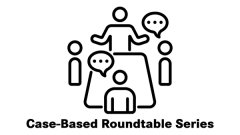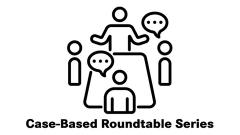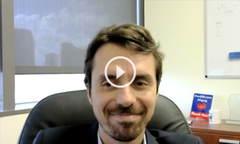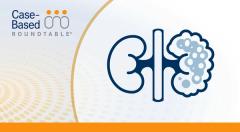
Managing Adverse Events with Superior Combination Therapies in RCC

Thomas Hutson, MD, PharmD, discusses management strategies when confronting adverse events using combination therapies in treating patients with renal cell carcinoma.
Episodes in this series

In an interview with Targeted OncologyTM, Thomas Hutson, MD, PharmD, director of the urologic oncology program for Texas Oncology Baylor University Medical Center, discusses the challenges that naturally come when adding therapies to treatment, such as the use of lenvatinib (Lenvima) and pembrolizumab (Keytruda) in patients with renal cell carcinoma (RCC).
According to Hutson, with combination therapies, there will naturally be more adverse events (AEs) to manage than with monotherapy, but efficacy from the combination treatment will increase. Therefore, Hutson describes strategies, such as dose reduction, to manage additional AEs and make sure patients continue to see a superior benefit on a combination than they would with monotherapy.
The phase 3 CLEAR study (NCT02811861) demonstrated that the combinations of lenvatinib and pembrolizumab or lenvatinib and everolimus (Afinitor) were superior to sunitinib (Sutent) in patients with advanced RCC for progression-free survival, objective response rate, and overall survival.
However, nearly all patients in the study and combination therapy experienced treatment-related AEs with 67.3% of patients treated with lenvatinib plus pembrolizumab compared with 49.7% in the sunitinib arm that led to dose reductions. Hutson says being proactive about dose reductions in this patient population allows patients to still experience the superior benefits without having to lose those benefits as clinicians manage AEs. He discusses empowering the patient to be a part of these decisions to help find the best dose for them and how the health-related quality of life is also still favorable with combination therapies.
TRANSCRIPTION:
0:08 | As we start adding on therapies, there is going to be an addition of [AEs] and that's just the way it is. Again, I think the surprise has been that if you can work through the AEs with the patient and optimize the dose. There is a dose response effect for people that as the higher the dose, the more chance of benefit, but also the more toxicity, so they go hand in hand.
0:34 | So, it's trying to optimize and individualize the dose for the patients sitting in front of you, using the standard for how we dose people, which is starting off at full dose, allowing AEs to declare themselves, then lowering the dose and optimizing it to try to keep that highest dose intensity. Sometimes that is just taking breaks periodically and allowing them to stay at the same dose, but saying, "Hey, when that AE gets to that point, that it's really impacting your quality of life, take a break for a couple days, when it gets better go back on it." Patients like that they have power, they're in control of that, and if that doesn't happen then go into the lower dose. So that kind of strategy is important.
1:18 | As we combine therapies, we're going to have added to have additive toxicity. Where we can feel comfortable and point your patients too and say, "Hey, if we can get this to work out and if we can find this right dose for you, then the data we have so far from the trials to health-related quality-of-life data, you're actually going to start feeling better as your tumor gets smaller.” The health-related quality of life data shows us that, that even though there's more overall AEs with the combinations, the health-related quality of life is improving over the comparator drug that had less AEs.















































